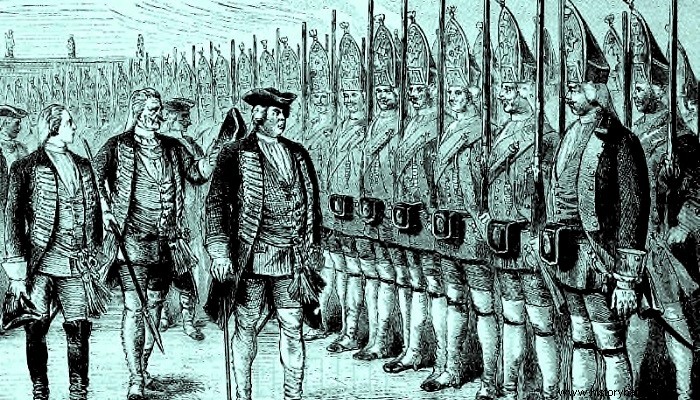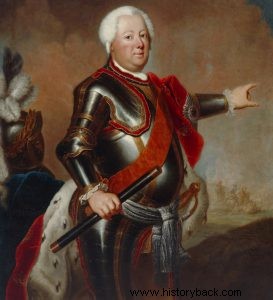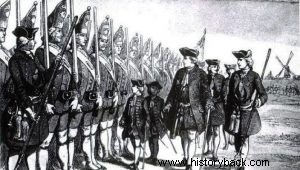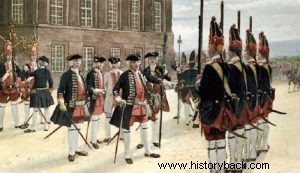
The King of Prussia, Frederick William I, was a special historical figure. To his energy and his interest you owe the creation of the best army that Europe had seen since the Roman period.
Measured and disciplined himself as a man, he imposed the same order and discipline on his kingdom from the time he ascended the throne in 1713 until his death in 1740, allowing his successor Frederick to emerge as "The Great".
Frederick William was closely involved with the finances of his state, regulating revenues and expenses, but he was even more concerned with those of the army. .
The annual revenue of the royal treasury was estimated at 7,300,000 Prussian thalers (silver coins). Of these, 4,900,000 thalers were spent on the army and another 1 million on defense infrastructure! It was an amazing percentage of "defense spending" that was not surpassed, proportionately, even by totalitarian regimes of the 20th century.
It is not by chance that Frederick William was known in Europe as the "Soldier King". On his accession to the throne, he established a military medical school, an officers' school, workshops for the production of weapons and cannons, schools for the orphaned children of soldiers.
He created a clever conscription system, dividing the country into military districts. For every 5,000 households an infantry regiment with two combat and one flat battalion was formed. A cavalry regiment was formed for every 1,800 households. In this way, the country was never without workers even in wartime.
It was also in his time that the synchronized step, known today as the "step", was established so that the men could march without breaking up their formations and the iron muzzle of muskets was discovered – until then wooden ones were used which easily broke.
The main infantry battle formation was defined as the line of three scales , so that all the men of a formation could shoot (the men of the first yoke were kneeling). At the same time he ordered the formation of a company of elite grenadiers per infantry battalion.
At the same time, by his order, the first modern military regulation of the world was drawn up who determined everything about the army, from the uniform, the attitude, to the behavior of officers, non-commissioned officers and soldiers.
As his son Frederick the Great used to say “the king was so disciplined that he could have put himself in the discipline if he did not wear his uniform according to the regulation”… He was strict but also a close friend to his superior officers and a real father to the others. He himself, like his son later, believed that the king was just the highest official of the country, nothing more.
The obligation of the upper class was to serve the country in every available way. It is worth noting that Prussian officers did not wear rank insignia from the rank of non-commissioned officer to colonel, as all officers were considered members of the same family.
In addition to the regular army, he created a National Guard with men training, compulsorily, certain days a year, receiving monetary compensation for their absence from work from the state. The regiments of the National Guard had active cores and could be mobilized in a short time.
Having completed their training, regular army soldiers were given 10-month leaves to return home and work normally, exempting the state from paying for their clothing and food.
Despite spending on the army, Frederick William, due to his watchful monitoring and the financial discipline he imposed, not only did not leave his son a state in debt, but on the contrary left in the coffers a reserve of more than 8 million thalers. strong>
Although he often clashed with his son Frederick, when the latter assumed the reins of the state he largely followed his father's policy as king of the "New Sparta" (nickname of Prussia given by other Europeans).

The King of Prussia, Frederick William I, in a 1733 portrait with the baton.


